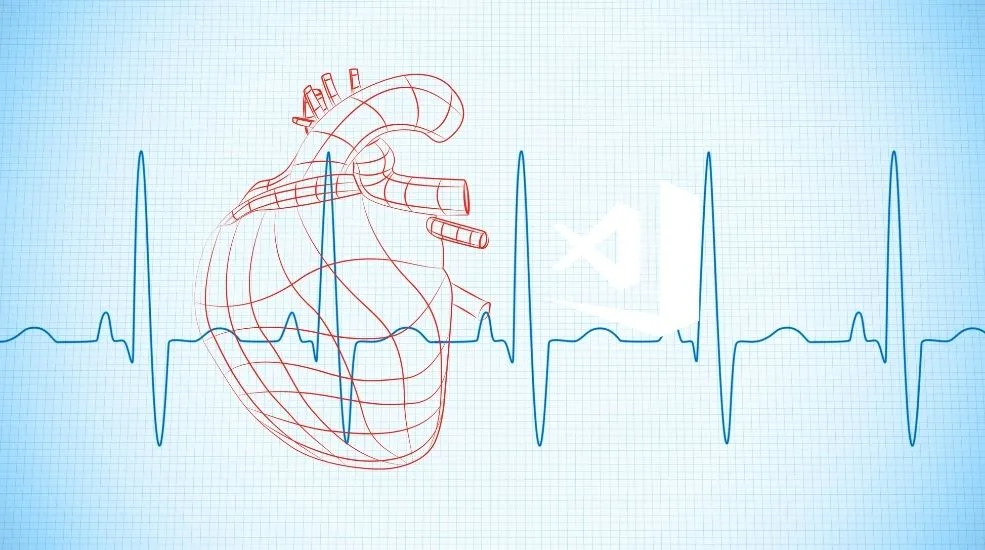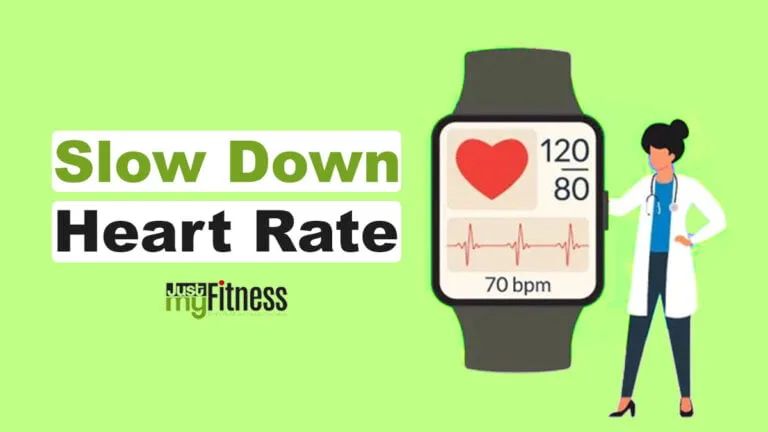How to slow down heart rate – is one of the major queries from individuals seeking to manage their stress and anxiety levels or improve their overall cardiovascular health. The constant stress of daily life can raise heart rates, which can have negative implications on health if not handled. But don’t worry; there are natural methods to reduce your heart rate that can be both sensible and effective.
Long-term slowing of the heart rate is likewise potential. This can be caused by several distinct ways of residing. The heart rate may also rise or down depending on the activity level or emotional state.
This post will explore eight tried-and-true techniques for lowering stress and improving heart health.
Why You Should Care About Your Heart Rate?
Let’s lower back up for a second, and don’t forget why preserving tabs on your coronary heart rate is so crucial and taking steps to manipulate it. The wide variety of times your coronary heart contracts and relaxes in a single minute is called your coronary heart rate or pulse. It is a primary measure of both your cardiovascular and general health.
A fast heart rate could be caused by a number of things, including stress, worry, or a medical condition. An critical job presentation or a tough workout are examples of situations that put your body to the test. While it’s normal to have a higher heart rate for brief intervals, doing so for too long could be harmful.
How do Heart Rates Work?
You can also ask, “What is a regular coronary heart rate?” Normally, an adult’s resting heartbeat ranges from between 60 to 100 beats in line with a minute. This heart rate can be affected by age, bodily health, and mental health, amongst different matters. Knowing your normal heart rate is essential for spotting abnormalities and taking corrective measures.
The Effects of Stress on the Heart:
Modern living is fraught with stress, which has been shown to significantly increase blood pressure and heart rate. Your heart rate increases when your body generates stress chemicals like adrenaline. Because of the link between stress and cardiovascular disease, its elimination or control is of paramount importance.
Ways to Slow Down Heart Rate:
Having established that, let’s dive into eight tried-and-true techniques for naturally decreasing heart rate and boosting health.

Deep Breathing
Another completely practical and easily applicable method of combating stress, which can be used throughout the day at work or while carrying out any activity, is breath control. You want to tell your frame, to the outside and then to the inside, and do so slowly and deeply, and your frame will get the message to let go.
Breathe in for four counts and hold your breath until you are ready to exhale, exhale as well for four counts. Presumably, if this practice is done daily for a few minutes, then one can feel the stress fading slowly.
Meditation Focusing Awareness
A study has indicated that mindfulness meditation reduces the level of stress and blood pressure to a significant level. The components of mindfulness may help decrease stress and enhance your heart health. Find a quiet place and get comfortable and then pay attention to your breathe as let go of the last idea you had.
Participating in Frequent Exercise
Another factor that must be maintained is the heart rate whereby it is encouraged that an individual exercises regularly. Aerobic exercise is generally good for the heart as it tones and maintains the organ’s condition. Get at least 150 minute of moderate intensity exercise per week. Brisk, power, and fast walking, swimming, and cycling are perfect choices.
Participating in Frequent Exercise
Exercising regularly is crucial for keeping a good heart rate. Consistent exercise benefits the heart by making it stronger and more efficient. Exercise for at least 150 minutes each week at a moderate level. Fast-paced walking, swimming, and bicycling are all fantastic options.
Botanical Teas
The coronary heart rate may be slowed by ingesting some herbal teas. Several types of tea, together with chamomile, lavender, and valerian root, were praised for their calming results. Relax and slow your heart rate with a cup before bed.
Hydration and Blood Pressure
The measure that your body uses in an attempt to compensate for the deficiency of fluid especially when you are dehydrated is by increasing your rate of heartbeat. Fruits and vegetables contain high amounts of water; thus drinking cups of these food products is a good way to ensure that one is taking adequate water in the course of the day.
Blood Pressure and Yoga
Some of the goals of practicing yoga include increasing the flexibility of muscles, strength of the muscles, as well as rate of beating of the heart and lowering stress. Savasana, child pose, and cat-cow are good postures for beginners because they assist in the relaxation and stretching of the muscles as well as regulating the heartbeat.
Differences in Nutrition
Data previously reported shows that some meals can cause reduction in heartbeat rate. Incidentally, it may be advisable to increase the intake of meals that are rich in omega-3 fatty acidity, potassium and magnesium. These nutrients are friendly to heart and might lead to a change in the rhythm of heartbeat. On the other hand, it is more advisable for you to consider a low amount of intake of processed foods, additional sugars, and caffeine.
Avoid Alcohol and Caffeine
It is a fact that alcohol and caffeine can create different types of tachycardia in the given states. Toing or eliminating some foods and drinks which one takes or consumes regularly can contribute greatly to a healthy heart. Avoid taking alcohol and opt for drinks without caffeine to help in decreasing your heart rate.
When You Need to See a Doctor
Even though these alternative treatments work for the vast majority of individuals, understanding whilst seeking expert help is vital. Consult a health practitioner right away when you have continual, unexplained symptoms related to your coronary heart charge, inclusive of palpitations, dizziness, or chest pain. These signs and symptoms might also indicate a greater extreme cardiac trouble that requires clinical interest.
Finally,
The heart is the most essential organ in the body; for this reason, it’s essential to keep its beat in check. Reduce stress, lower your heart rate, and feel better by implementing these eight herbal practices into your ordinary life. Always keep in mind that a healthy heart rate equals a healthy one. Thats why! In this brief note, we listed some of the best ways to slow down your heartbeat.
FAQs:
What does it mean if my heart rate varies during the day?
Your heart rate will naturally change in response to your physical exertion and emotional state. However, persistently high or irregular heart rates require close observation and treatment.
Can I track my heart rate with a wearable fitness tracker?
Absolutely! Heart rate tracking is a common function on fitness trackers, and it may be used to provide important insights about your cardiovascular health.
How long till I get effects from practicing deep breathing or meditation?
Regularity is essential. To see important gains in controlling your heart rate, you need to interact with deep breathing or meditation on a daily foundation for at least a few weeks.
If I want to slow my heart rate, are there any foods I should avoid?
Saturated fats, trans fats, and added sugars are bad for you, so lower return on them. These elements were connected to extended heart rates and associated cardiovascular issues.
Heart rate variability: may genes have a role?
While it is proper that your genes ought to play a part in figuring out your resting heart rate, environmental and behavioral variables also play a primary function in keeping your coronary heart rate in check.


